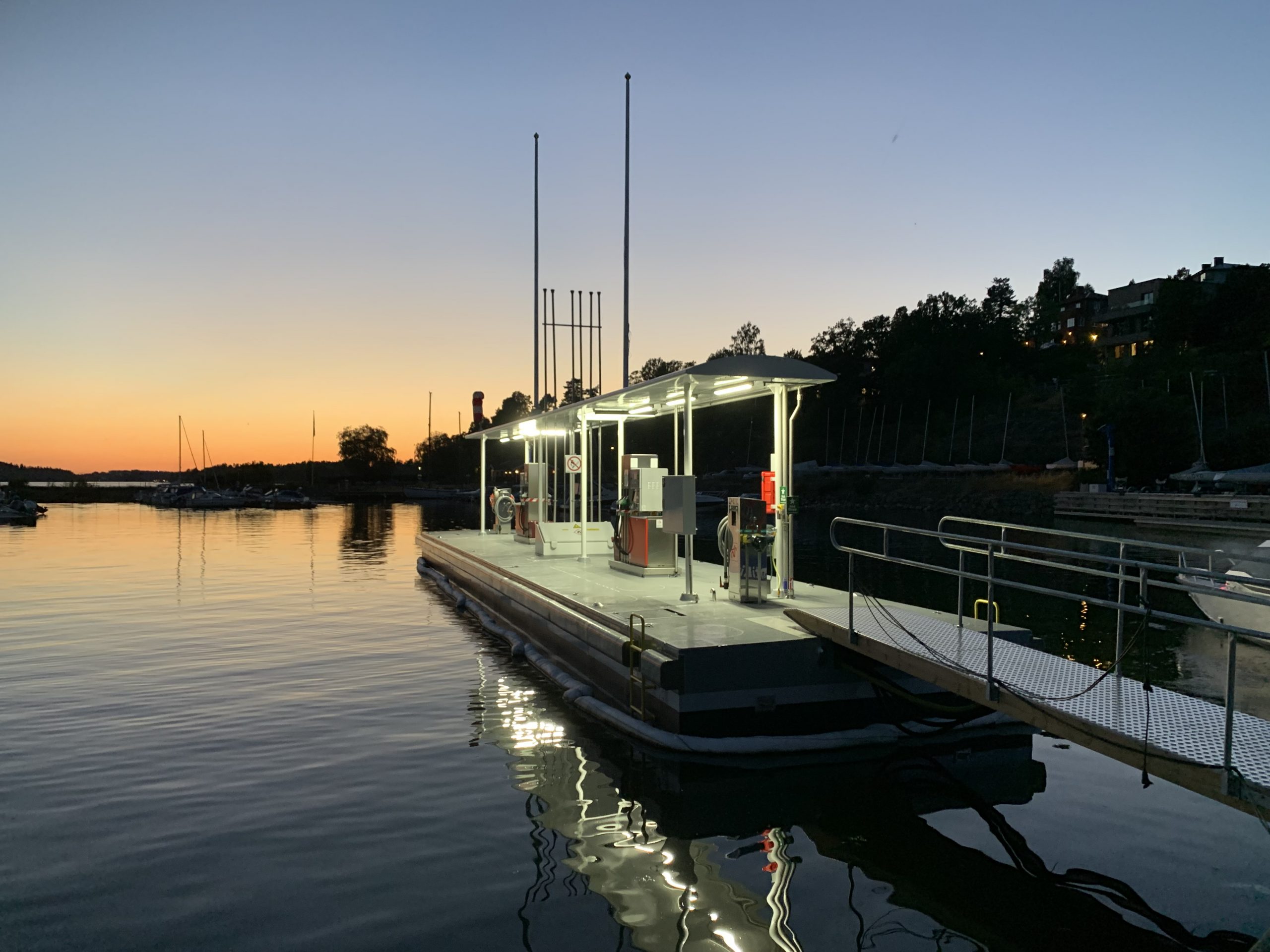
Secfuel offers its latest breakthrough in marine fueling technology: the unmanned self-service floating marine fuel station with integrated fuel tanks, compatible with all types of liquid fuel including HVO100 and future e-fuels.
This cutting-edge solution is specifically designed to cater to the needs of modern marinas, ports, harbors and the ever-growing group of environmentally conscious boaters. The platform is adaptable to customer specific needs and demands regarding design and branding.
Secfuel’s 24 meter long unmanned floating marine fuel station is a testament to Secfuel’s commitment to reduce the environmental impact from boating.
Its design complies with the strictest environmental standards, including those for freshwater reservoirs across the EU, ensuring that every refueling operation is as environmentally friendly as possible. The design, with its unique tank design and layout, enables the transition from todays reliance on fossil based fuels to the sustainable and renewable fuels of tomorrow.
Secfuel’s floating fuel stations revolutionizes the overall experience by integrating advanced technology that simplifies the fueling process.
Equipped with one central refueling port and with state-of-the-art fuel dispensers, each station offers easy access and quick service, accommodating multiple larger vessels simultaneously without the need for onsite personnel.
This unmanned approach not only reduces operational costs, while offering 24/7 refueling services, but also enhances safety by minimizing human error.
The marine fuel stations adhere to the strictest safety standards and have undergone rigorous testing, verification and certification processes.
The design incorporates robust safety features, including emergency shut-offs and leak detection and prevention systems, ensuring a safe refueling environment for all users.
The floating fuel dock solutions have been verified and tested by DNV and TÛV to prove the design’s robustness, safety and sustainability.
Recognizing the diverse needs of modern marine operations, Secfuel’s stations are designed to be future-proof. They are capable of dispensing a variety of fuel types, from traditional marine fuels to biofuels, including renewable diesel (HVO100/XTL), and future e-fuels. This versatility ensures that Secfuel stations can adapt to changing fuel technologies and remain at the forefront of the industry.
Secfuels’ floating marine fuel station is 24 meters long. For locations with high traffic intensity and corresponding capacity needs, it is possible to dock multiple stations together, achieving longer pier-like configurations.
The sustainable design also ensures an unsurpassable service life of up to 50 years, and minimizes the risk for leakage due to rust and wear and tear.
Secfuel’s unmanned self-service marine stations are not just eco-friendly—they’re economically advantageous.
The reduced need for onsite staff and the efficiency of the fueling process lower the overall operating costs, making it an attractive investment for marina operators both in the private and public sector. The floating pontoon technology offers marina operators the flexibility of relocating refueling facilities, freeing up valuable dock space and real estate for other value creating activities.
With a design life of up to 50 years, these stations promise long-term serviceability, low TCO and good ROI.
Secfuel’s commitment to innovation and sustainability has garnered support from major players in the maritime industry. The introduction of Secfuel’s marine fuel stations has been met with enthusiasm, signaling a strong shift towards more sustainable marine operations.
Reach out to discuss solutions to your secure fuel needs!
Email: [email protected]